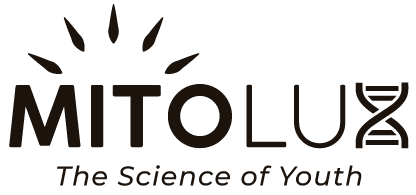When we think about the warm embrace of sunlight, feelings of happiness, relaxation, and perhaps a good dose of Vitamin D come to mind. But what if the rays of the sun, particularly ultraviolet B (UVB) light, played a more intimate role in our lives than previously known? A recent study suggests that exposure to UVB light has profound effects on our sexual behavior and physiology, revealing an intriguing skin-brain-gonadal connection.
Unraveling the UVB and Sexuality Connection
The study, which was primarily conducted on female mice, shed light (pun intended!) on a series of fascinating findings:
- Boosted Hormone Levels: Mice exposed to UVB light showed elevated levels of hormones connected to the hypothalamus-pituitary-gonadal (HPG) axis. This effect led to the enlargement of ovaries, which is significant in the context of fertility and reproductive health.
- Extended Estrus Days: The estrus phase, akin to the fertile period in human females, was found to be longer in UVB-exposed mice. This could have implications for fertility and reproductive cycles.
- Increased Anti-Mullerian Hormone (AMH) Expression: AMH is a vital hormone for female reproductive health, playing a role in the development of ovarian follicles. Higher AMH levels could signal better ovarian reserves and fertility potential.
- Enhanced Attractiveness and Receptiveness: Surprisingly, female mice exposed to UVB were found to be more responsive and attractive to their male counterparts. The study also observed increased interactions between male and female mice after UVB exposure.
The Role of Skin p53
One might wonder how skin exposure to UVB light translates into such significant endocrine and behavioral changes. The study identified the pivotal role of the p53 protein in skin keratinocytes. When this protein was conditionally knocked out in the test subjects, the UVB effects were negated. This suggests that UVB exposure activates the skin p53 protein, which then triggers the cascade of hormonal and behavioral changes.
Human Implications: Sunlight and Romantic Passion
Extending the research from mice to humans, the study found correlations between solar exposure and increased romantic passion in both genders. Men, interestingly, also showed a rise in aggressiveness. This was validated through individual questionnaires. Moreover, solar exposure in humans positively correlated with increased testosterone levels, a primary sex hormone that plays a role in libido, energy, and mood.
Potential Therapeutic Applications
The findings from this study are not just intriguing for their novelty but also for their potential therapeutic implications. The connection between UVB exposure and elevated sex-steroid hormone levels could offer new avenues for the treatment of sex-steroid-related dysfunctions. While it's early days and further research is needed, it's an exciting proposition that something as accessible as sunlight could play a role in managing conditions related to hormonal imbalances.
Conclusion
The complex dance between the environment and our physiology has always been a subject of fascination. This study adds a new dimension to our understanding, showing that the sun's rays can have a profound effect on our sexual health and behavior. The next time you step out into the sunlight, remember the mysterious skin-brain-gonadal connection it's nurturing. It seems nature has its way of ensuring that we, much like plants, thrive with a bit of sunshine!


